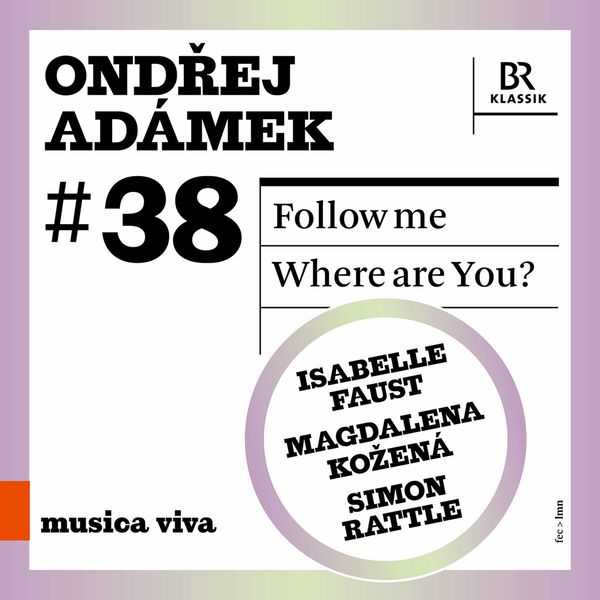

Composer: Ondřej Adámek
Performer: Isabelle Faust, Magdalena Kozená
Orchestra: Symphonie-Orchester des Bayerischen Rundfunks
Conductor: Peter Rundel, Sir Simon Rattle
Format: FLAC (tracks)
Label: BR Klassik
Catalogue: 900638
Release: 2022
Size: 607 MB
Recovery: +3%
Scan: yes
Follow Me
01. I. —
02. II. —
03. III. —
Where Are You?
04. I. Slotha – Setting a Trap for Divine
05. II. Where Are You?
06. III. Peter Sent Me Back
07. IV. Sharp Point
08. V. Seata
09. VI. Confession
10. VII. Ecstacy
11. VIII. Levitation
12. IX. You Are Not Here
13. X. Gentle Whisper
14. XI. Everywhere
Born in Prague in 1979, the composer, conductor and chorus master Ondrej Adámek, who studied in his Czech hometown and in Paris, has already won numerous prestigious awards for his orchestral, chamber, vocal and electro-acoustic music. In his musical language, which also repeatedly incorporates elements of distant cultures, he creates unusual musical narratives. He seeks the authenticity of his interpretations by combining voices and movements, gestures and theatricality, phonetic and semantic aspects, and his own specially developed musical instruments.
The premieres of Ondrej Adámek’s Where are You? and Follow me were distinctive for their excellent casts, featuring stars such as Magdalena Kožená, Isabelle Faust and Simon Rattle.
In Adámek’s Follow me, a three-movement concerto for violin and orchestra, the melodies are divided between the soloist and the orchestra along the lines of the late medieval hocket technique, whereby the composer seeks to connect a single individual with a (human) crowd.
The first performance of Adámek’s Where are You? for mezzo-soprano and orchestra was an outstanding event in Munich’s concert programme. In the eleven-part, approximately 35-minute-long kaleidoscope of sound, dominated by constant motoric movement – ranging from everyday sounds such as the monotonous ticking of a clock to the sweeping, electrifyingly rhythmic pounding of the orchestra tutti – the composer embarks on a search for the human (“Where do we come from and where are we going?”) and the divine.